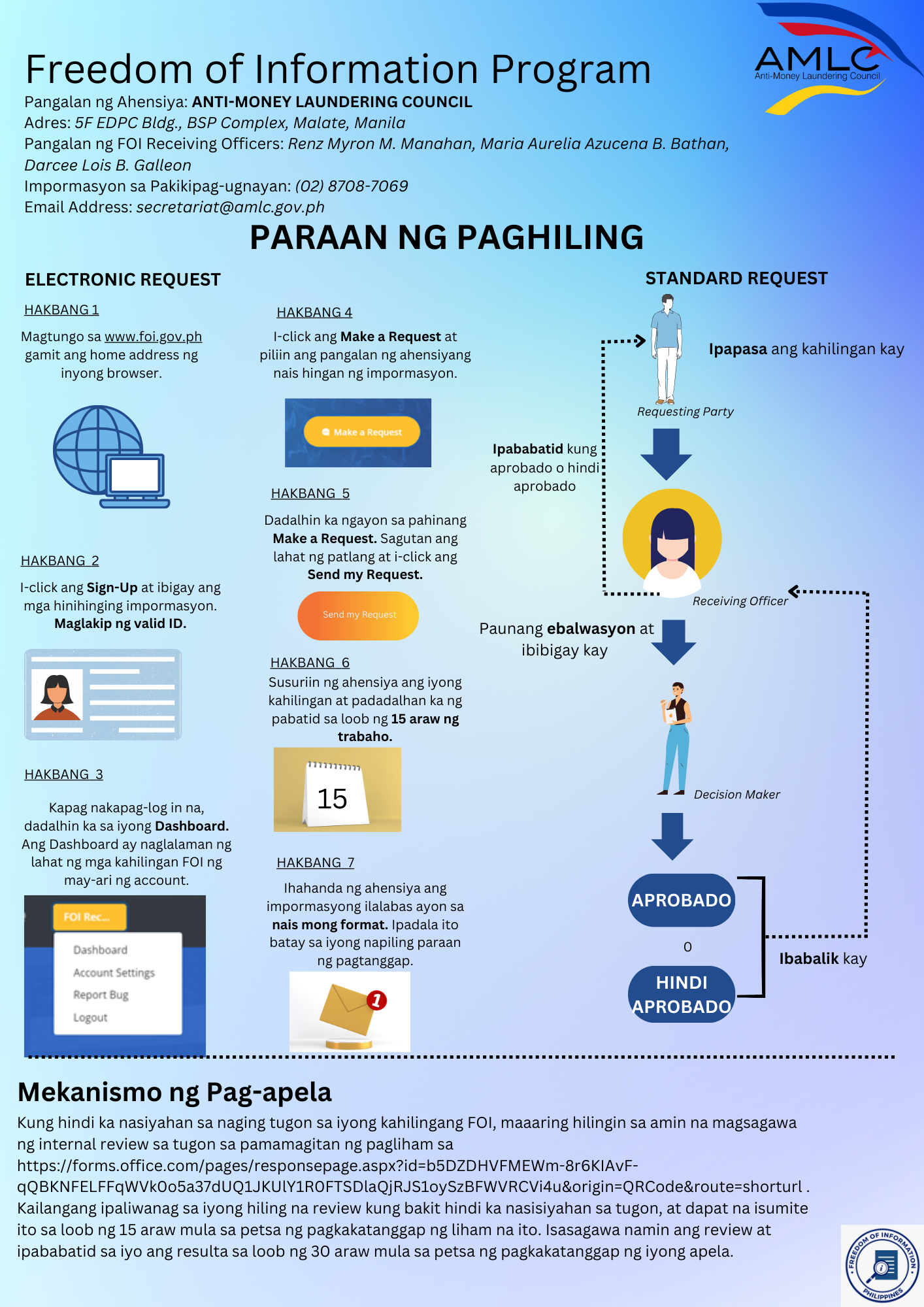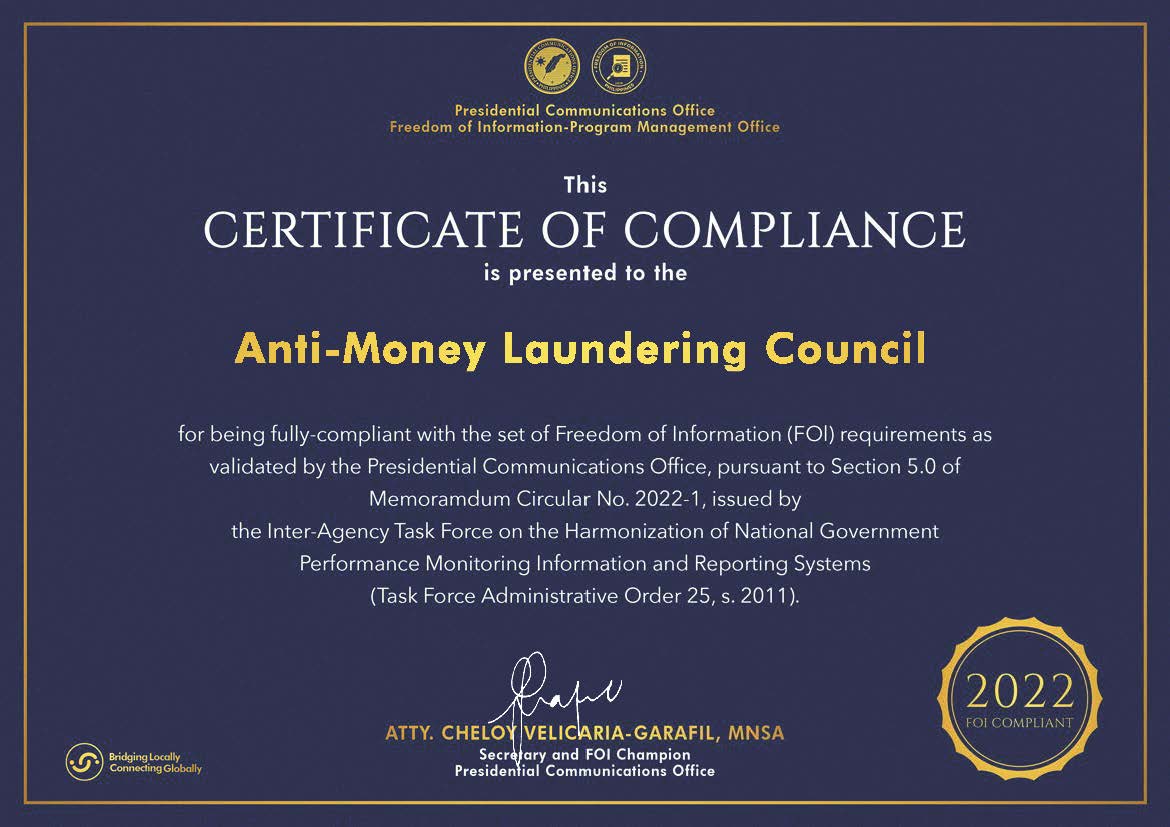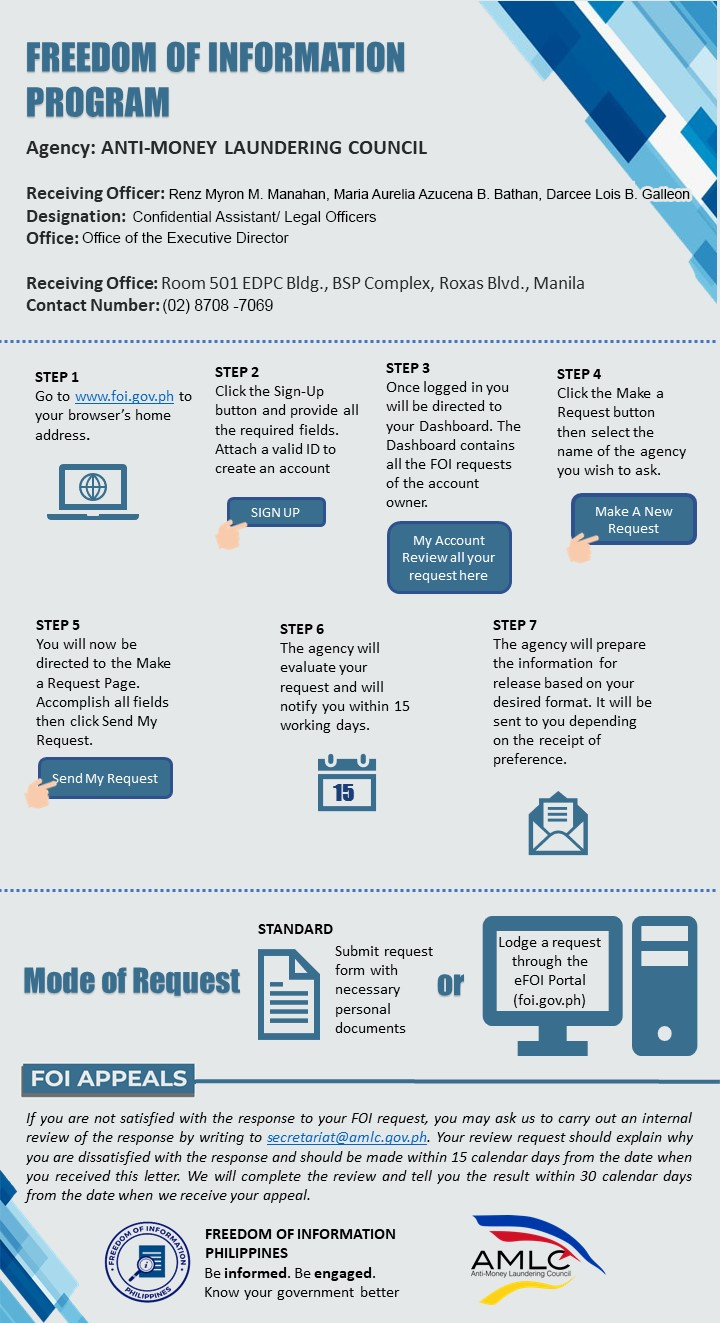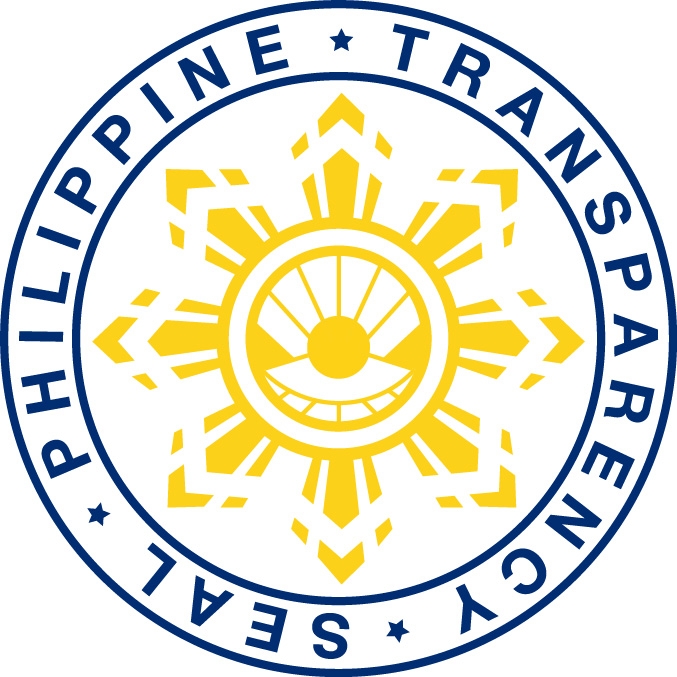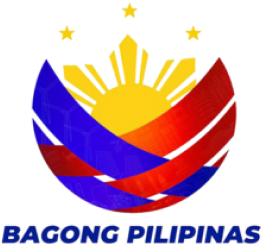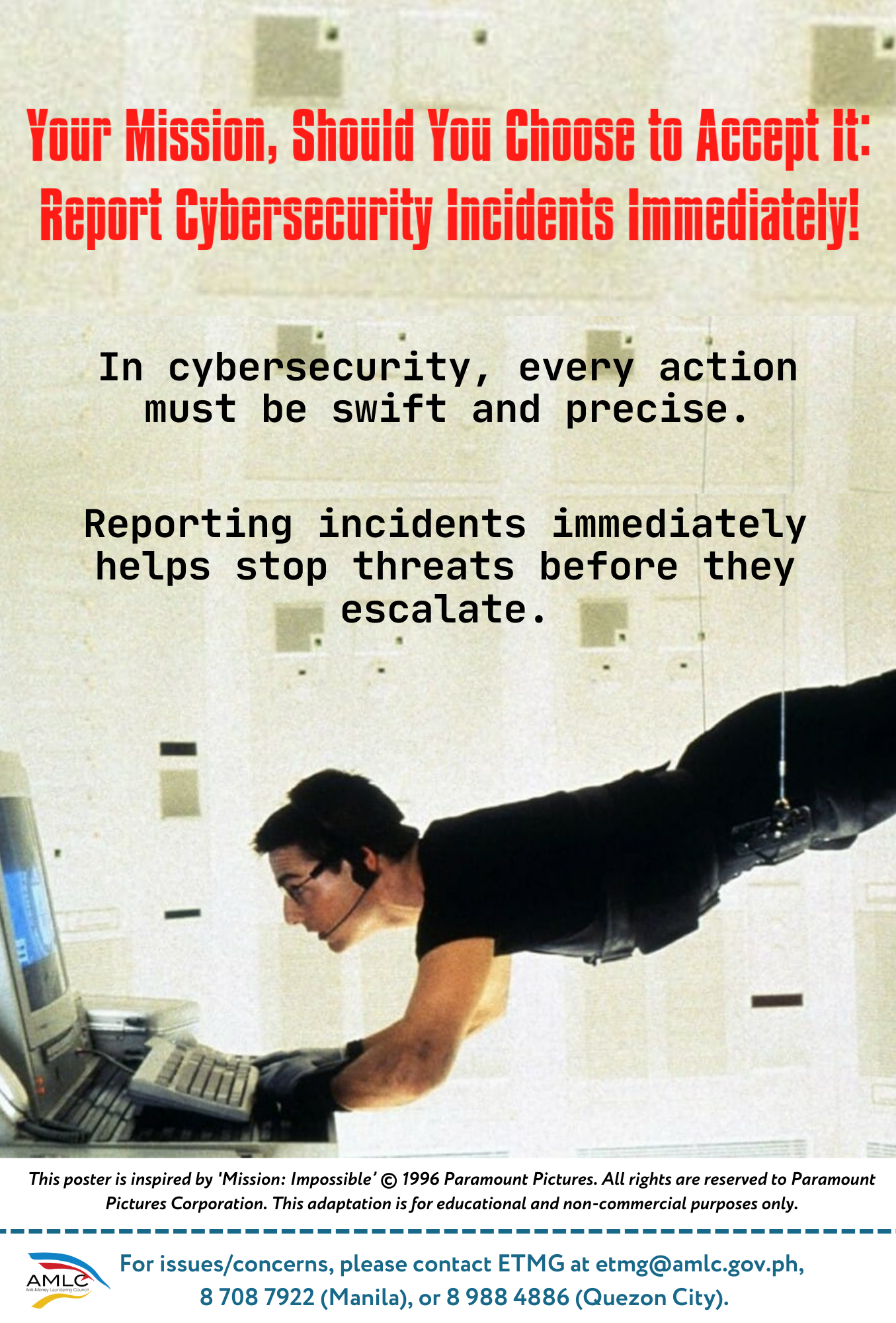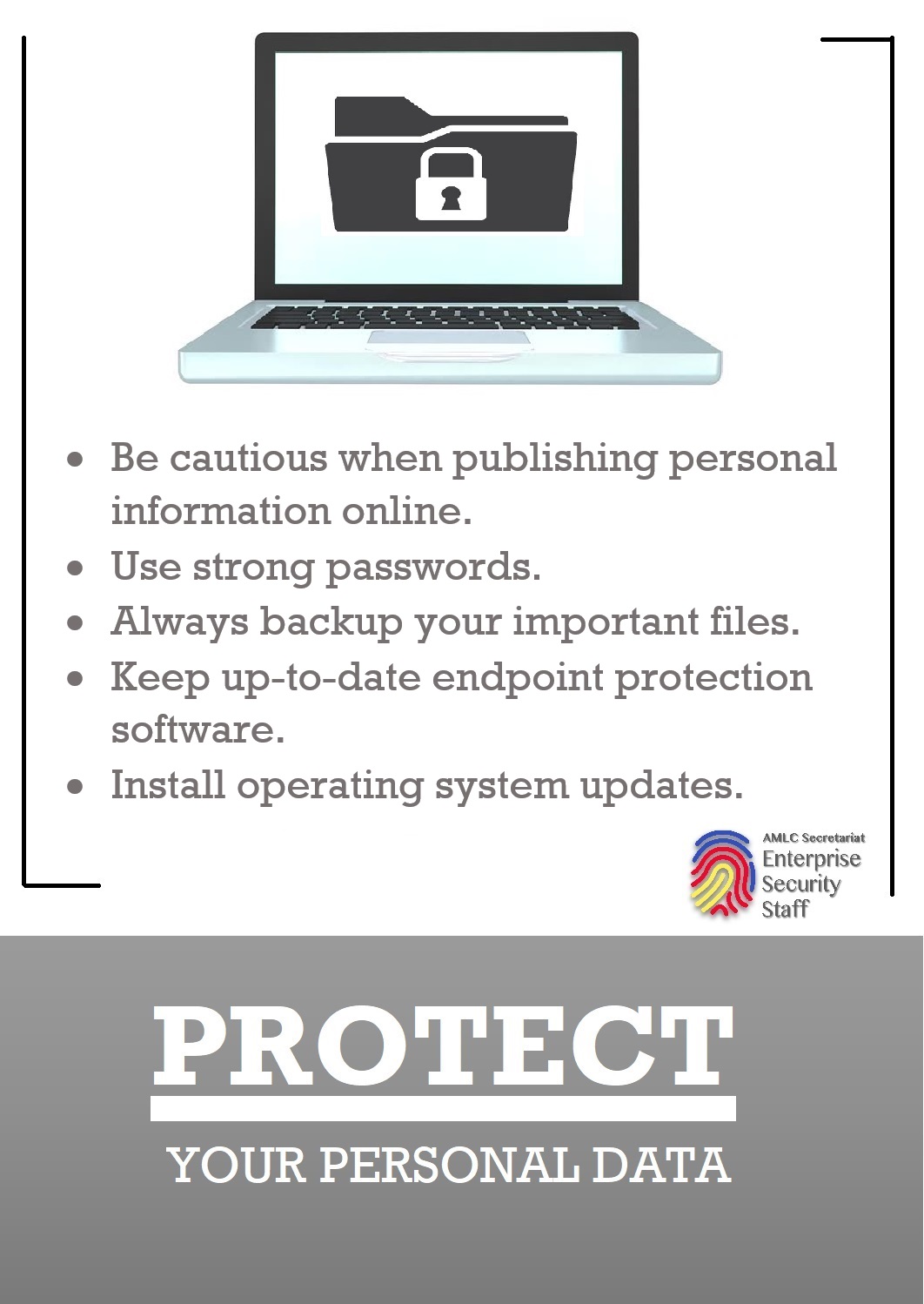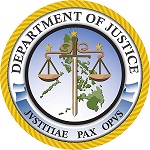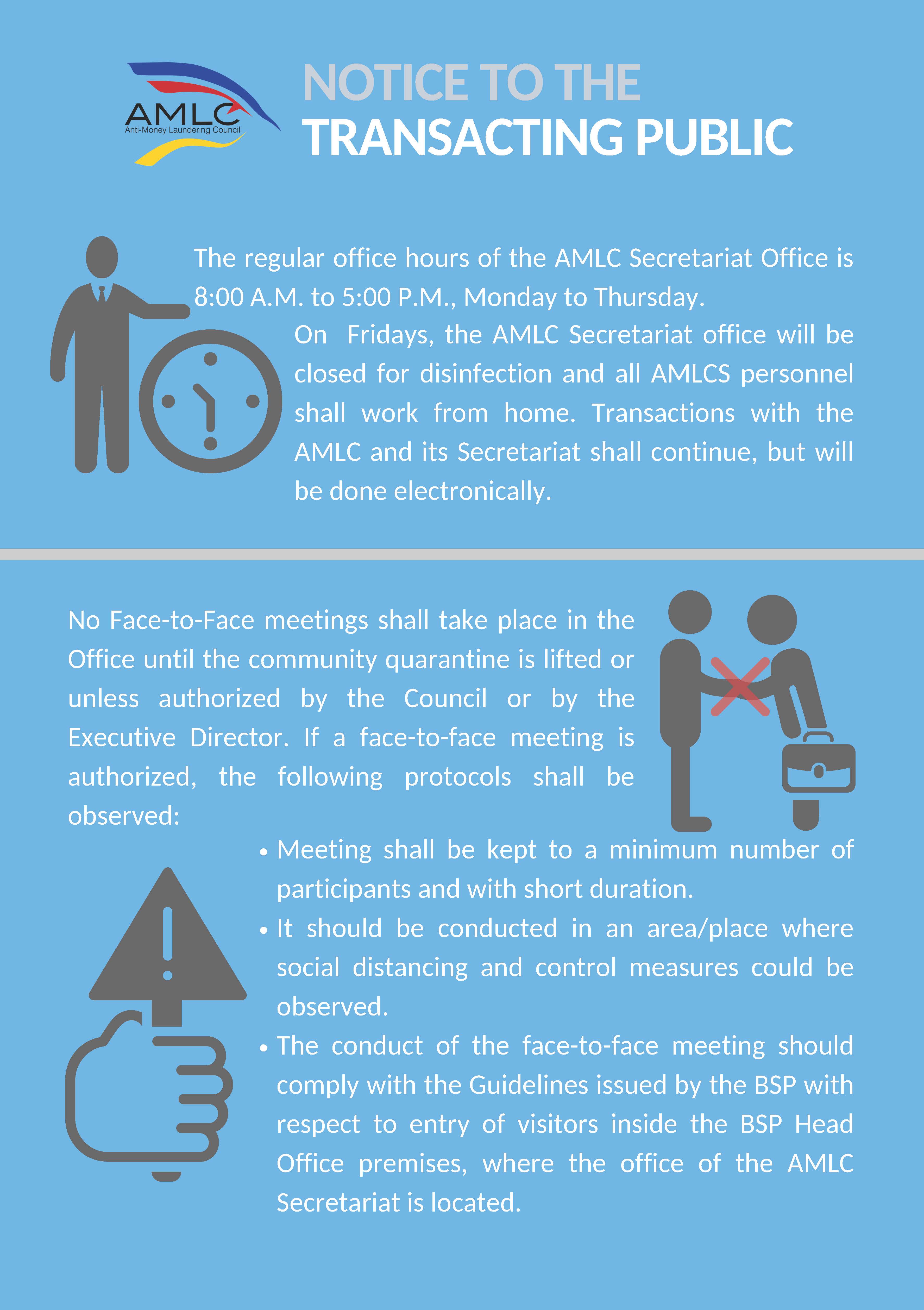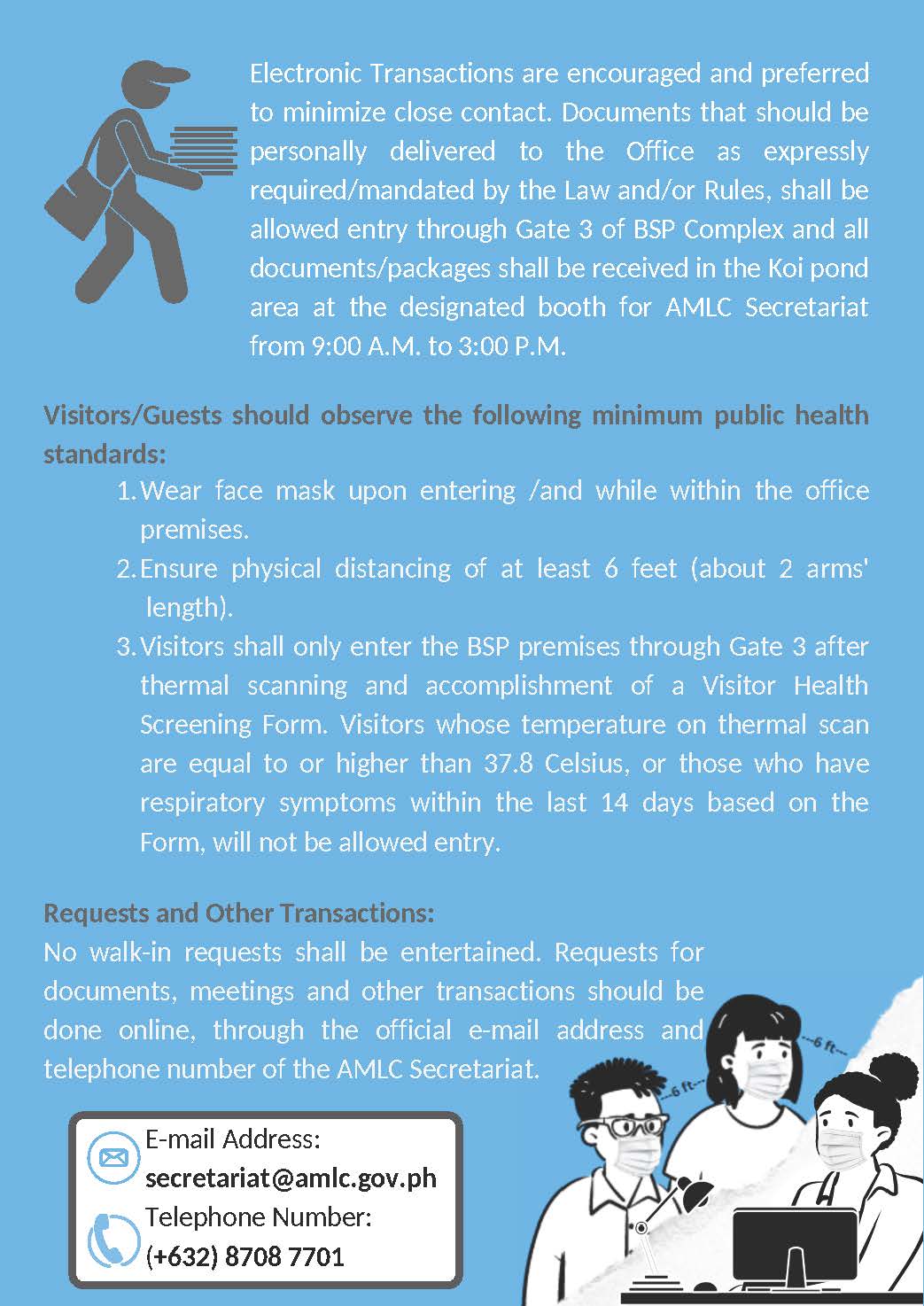CTRs, STRs, and KYC Document Submissions during the MECQ until 31 May 2020
Along with the prior AMLC advisories on covered transaction reports (CTRs), suspicious transaction reports (STRs), and know-your-customer (KYC) document submissions during the enhanced community quarantine (ECQ) period and in view of the President’s approval of the Inter-Agency Task Force for the Management of Emerging Infectious Diseases (IATF-EID) Resolution No. 35 to place the National Capital Region and other areas under the modified ECQ (MECQ) from 16 to 31 May 2020, please be advised of the following:
The periods 18 to 22 and 25 to 29 May 2020 shall be considered workday suspensions in accordance with the MECQ.
Further, all specified deadlines in regard to pending requests for submission of KYC documents as well as requests during the MECQ period (16 to 31 May 2020) are hereby suspended.
Together with the rest of the world, the AMLC continues the battle against the COVID-19 pandemic.
Advisory
Conduct of Online Training Sessions by Accredited Training Providers (ATPs) and Institutional Training Providers (ITPs) during the COVID-19 Pandemic
For information, please click the link.
CTRs, STRs, and KYC Document Submissions during GCQ
In view of the President’s approval of the Inter-Agency Task Force for the Management of Emerging Infectious Diseases (IATF-EID) Resolution No. 40 to place the National Capital Region and other areas under general community quarantine, please be advised that the suspension of the filing and submission of covered transaction reports (CTRs), suspicious transaction reports (STRs), and know-your-customer (KYC) documents and other records required by the AMLC within the reglementary periods under the Anti-Money Laundering Act of 2001, as amended, and its Implementing Rules and Regulations is lifted, beginning 1 June 2020.
Hence, all CTRs, STRs, and KYC documents and other records, which were previously deferred for submission to the AMLC, covering the periods 12 to 13 March 2020 and 17 March to 31 May 2020, respectively, shall be reported in accordance with Rules, Guidelines, and Directives.


 REVISED 2 3.jpg)

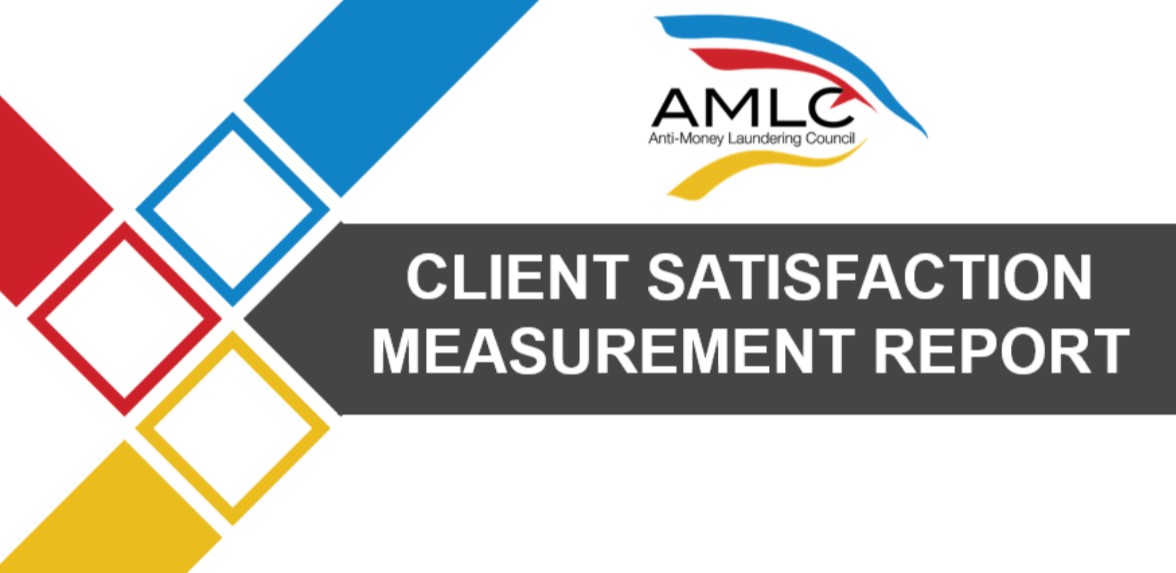 2024 (First Edition)
2024 (First Edition)